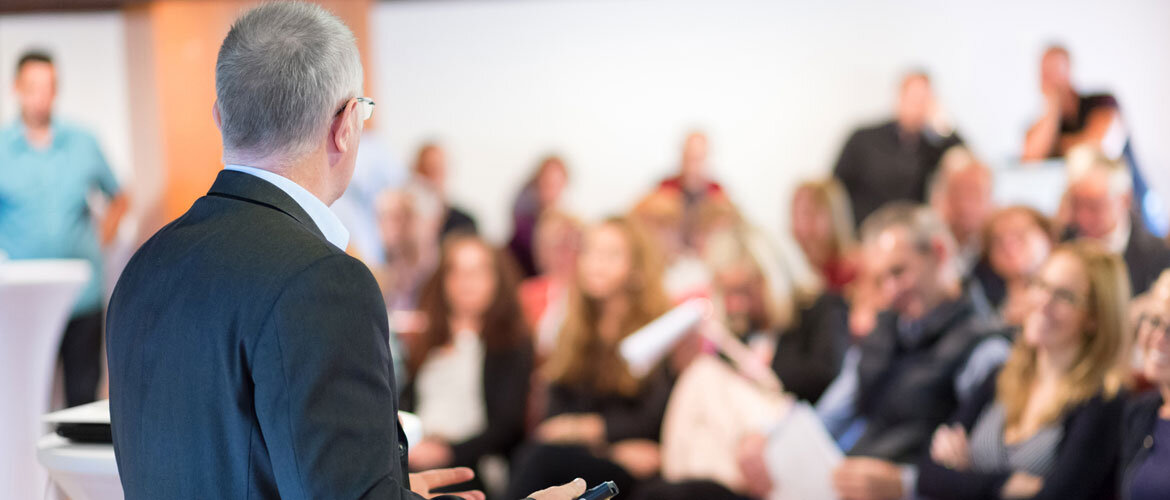Presentation of Results at the 13th Global Business Conference
- 13.10.2022
- Research

Lively exchange between participants at the 13th Global Business Conference 2022.
At the 13th Annual Global Business Conference in Dubrovnik, Croatia, which took place under the motto Reshaping customer-oriented business, current research results of the University of Applied Sciences Kufstein Tirol in the fields of marketing and tourism were presented.
The 13th Annual Global Business Conference, organized by the Innovation Institute, took place in Dubrovnik, Croatia, from 21 to 24 September 2022. Three professors from the FH Kufstein Tirol also took part in this international meeting and presented current research results from the fields of marketing and tourism.
CONFERENCE WITH INTERNATIONAL ATTENDANCE
The Global Business Conference took place for the 13th time this summer, once again attracting researchers from around the world to present and discuss their latest research. The University of Applied Sciences Kufstein Tirol has been associated with this conference for several years, as Prof. (FH) DDr. Mario Situm is active in the Academic Program Committee and also chaired a series of lectures this year.
EMPLOYER ATTRACTIVENESS IN ALPINE DESTINATIONS
The influence of destination-specific factors on the motivation of potential employees to apply or to stay in the destination. In a joint project, Prof. (FH) Dr. Alexandra Brunner-Sperdin and Prof. (FH) DDr. Mario Situm addressed the question of the extent to which factors in the description of a destination influence the attractiveness of tourism employers. The two-factor model by Herzberg et al. (1959) was used as the theoretical basis. Here, hygiene and motivation factors were crucial for employee motivation and satisfaction. These factors were supplemented by factors for the description of the destination and related to each other in the context of a structural equation model.
The data for the study includes responses from 406 subjects (employees and students in the tourism industry), which were collected as part of an online survey. The results show that hygiene factors have a particularly strong relationship with destination factors (e.g. quality of life in the region, nature, regionality and culture in the region). Therefore, these should definitely be used by companies to increase their attractiveness as employers in tourism. The topic was met with great interest by the conference audience, and the lively discussions and suggestions have already led to approaches for further research. In this context, the participants explained that the presented results are also transferable to other industries.
PROFITABILITY OF AUSTRIAN TOURISM BUSINESSES
Prof. (FH) DDr. Mario Situm presented the results of a study that was conducted and analyzed together with Prof. (FH) Dr. Alexandra Brunner-Sperdin. The question of which factors influence the profitability of Austrian tourism businesses (hotels and restaurants) was to be clarified. For this purpose, 776 observations in the period from 2005 up to and including 2015 were analyzed using the method of quantile regression. Results show that the age and size of hotel businesses generally have an influence on profitability. However, once a certain age or size is exceeded, profitability decreases again, which can be explained by economies of scale. For both groups of companies, over-indebtedness has a negative impact on profitability. It could also be shown that diversification into other business areas and increasing bed occupancy can lead to an increase in profitability. Location only has an influence on profitability for restaurants, and the average length of stay of tourists is only relevant for hotels. Finally, an increase in GDP has a particularly positive effect on profitability for large companies. The results were discussed in plenary and were considered to be very interesting and informative. Suggestions were made for a potential publication of the results as an international scientific paper.
RESULTS OF THE INTRODUCTION OF AN ONLINE STUDENT PLATFORM
As the third contribution from the University of Applied Sciences Kufstein Tirol, Prof. (FH) Dr. Peter Schneckenleitner presented the final results of his TWF project Student User-Generated Content as a Communicative Success Factor for Universities – Final Results as a virtual lecturer. The focus was on the scientific design and implementation of a student online platform and the practical implications derived from it.
The experience of attending the conference once again clearly demonstrates the importance of networking with other researchers and engaging in discussions with them in order to become familiar with different perspectives.
The many discussions that took place provided important insights and perspectives that can be incorporated into further research. In addition, participation is also an excellent indicator of the research topics that colleagues in other countries are working on and the extent to which one's own research efforts are finding relevance and recognition in the scientific community.
